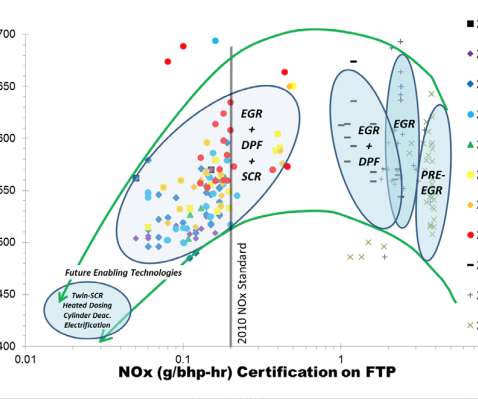MECA report finds additional NOx emission reductions from new heavy-duty trucks achievable and cost-effective
Green Car Congress
FEBRUARY 5, 2020
The transportation sector was responsible for over 7 million tons of NO x emissions in the US in 2014, with 50% of this sector’s NO x attributed to heavy-duty on- and off-road vehicles and equipment. CO 2 and NO x certification test data for heavy-duty diesel engines certified from 2002 through 2019. Source of data: US EPA (2019).







































Let's personalize your content